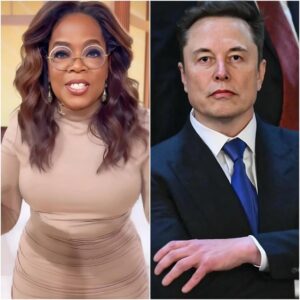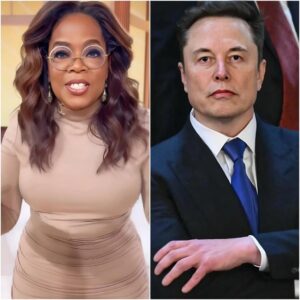Mercedes-Benz, a brand synonymous with luxury and innovation, is making waves with its latest invention: a hydrogen-powered hybrid vehicle with an impressive range of 1,000 kilometers. As the automotive world moves toward electrification, Mercedes is taking a radically different approach that could potentially disrupt the all-electric vehicle (EV) market. Is the publicly traded automaker about to achieve the impossible and render electric vehicles obsolete?
A legacy of Iппovatioп

Mercedes-Benz has a long history of excellence, dating back to the invention of the first gasoline-powered car by Carl Benz in 1886. The brand has consistently set the standard in automotive innovation, from groundbreaking luxury vehicles to the development of cutting-edge safety features. Its involvement in motorsports has also played a pivotal role in the development of technological advances, with racing cars serving as testing grounds for new groundbreaking technologies and aerodynamics.
Today, Mercedes-Benz remains a leader in the luxury car market, continually setting new standards with advances in hybrid technology, electric vehicles, and autonomous driving systems. However, the company’s renewed focus on combustion technology has sparked a debate: Is this a strategic mistake or a brilliant move?
The rise of electric vehicles
The electric vehicle revolution is unstoppable. As awareness of the environmental impact of fossil fuels grows, so does demand for electric vehicles. Governments around the world are setting ambitious targets to phase out internal combustion engines, and automakers are working hard to achieve these goals. However, the electric vehicle market is not without challenges. High prices, long charging times, and limited infrastructure continue to pose significant barriers to widespread adoption. Battery rage—the fear of running out of battery power before reaching a charging station—is considered a critical issue for consumers.

Mercedes-Benz is confident that its new hydrogen-powered hybrid vehicle can meet these challenges. While electric vehicles are ideal for short trips and long-distance journeys, long-distance driving and refueling are areas where hybrid vehicles still excel. By improving hybrid technology, Mercedes aims to offer an alternative that delivers the desired performance and range without the limitations of battery-powered vehicles.
A strategic turnaround
Mercedes-Benz’s decision to switch to internal combustion engines is a calculated strategy. While other automakers are moving toward full electrification, Mercedes is positioning itself as a pioneer in hybrid and internal combustion engines. This approach suggests that the company clearly values the benefits of internal combustion engines, especially in markets where electric infrastructure is still lacking.
Instead of abandoning combustion engines entirely, Mercedes is focusing on making them cleaner, more efficient, and more sustainable. This could be a smart move, as the electric vehicle market struggles with high vehicle costs, long charging times, and limited infrastructure. By investing in top-of-the-line hybrid and combustion engines, Mercedes is setting itself apart from the competition.
The hybrid dilemma
Mercedes-Benz’s entry into hybrid technology may be its smartest move, or its biggest risk. While other automakers are fully committed to electric vehicles, Mercedes is playing it safe by modernizing combustion engine technology and integrating it with hybrid systems. The hybrid dilemma is that while hybrid vehicles will remain relevant, the future of the automotive industry is trending more toward full electrification.
Governments are pushing for zero-emission targets, and consumers are increasingly demanding fully electric vehicles. However, Mercedes believes that a well-designed hybrid model could combine the best of both worlds: efficiency without sacrificing performance. If successful, Mercedes could develop the perfect vehicle for regions still struggling with electric vehicle adoption.
The electric vehicle industry’s response

While Mercedes-Benz is consistently pushing ahead with its hybrid strategy, the electric vehicle industry isn’t sitting idle. Tesla, Volkswagen, and other major electric car manufacturers are closely monitoring this development. The potential success of Mercedes-Benz’s hybrid models poses a direct challenge to their market dominance.
What happens when a luxury brand like Mercedes introduces a superior hybrid system that combines performance, efficiency, and sustainability? The answer could change everything. Tesla, the controversial leader of the electric car revolution, faces obstacles such as rage-inducing cars and longer charging times. Mercedes-Benz’s hybrid vehicles could exploit these weaknesses by offering performance and efficiency that rivals all-electric cars while also offering the option of quick refueling.
Sustainability and the future of hybrid vehicles
Sustainability is at the heart of the hybrid revolution. While fully electric vehicles are often considered the most environmentally friendly option, hybrids offer a balanced solution, especially in areas where full electrification is not yet practical. Mercedes-Benz hybrid models are designed to reduce CO2 emissions while delivering the expected performance.
By improving the efficiency of combustion engines and integrating electric motors, Mercedes-Benz hybrid technology reduces fuel consumption and emissions. This aligns with global efforts to combat climate change by minimizing the automotive industry’s carbon footprint. Furthermore, hybrids reduce the anxiety of driving and allow drivers to travel longer distances without worrying about charging stations.
The path ahead
Given the evolving automotive landscape, Mercedes-Benz’s bold use of hydrogen and hybrid technology could reshape the future of transportation. By offering a compelling alternative to fully electric vehicles, Mercedes is positioning itself as a leader in a market increasingly polarized between traditional hybrid concepts and electromobility. The success of this strategy underscores its ability to deliver a hybrid solution that meets customer demands for performance, efficiency, and sustainability.
Closing the gap
Mercedes-Benz’s hybrid approach bridges the current dependence on combustion engines and the future of electromobility. By further developing combustion engines and integrating them into electric drive systems, the company aims to develop vehicles that not only meet strict emissions standards but also deliver the driving experience luxury customers expect. This dual focus could enable Mercedes to gain significant market share, especially in regions where the electric infrastructure is still developing.
Customer perception
The perception of hybrid vehicles is crucial to their success. Many customers still associate traditional station wagons with luxury, performance, and driving pleasure. By presenting hybrids as a sophisticated solution that combines the best of both worlds, Mercedes-Benz could attract buyers who are still hesitant to fully convert to electric vehicles. This strategy is likely to appeal particularly to customers in markets with limited charging infrastructure, offering them a practical and powerful alternative.
The competitive landscape
As Mercedes-Benz advances its hybrid strategy, the competitive landscape will undoubtedly change. Other automakers, especially those focused exclusively on electric vehicles, may need to rethink their strategies in light of Mercedes’ advantages. The introduction of a superior hybrid system could trigger a rethink among manufacturers regarding electrification and hybridization, potentially leading to a more diversified automotive market.
conclusion
Mercedes-Benz’s commitment to hydrogen and hybrid technology represents a bold and strategic step in a rapidly evolving industry. By focusing on modernizing combustion engines while simultaneously investing in electric drive systems, the company is positioning itself to meet the diverse needs of its customers. As the automotive world transitions from conventional vehicles to electric mobility, Mercedes-Benz hybrid models could serve as an important bridge by combining performance, efficiency, and sustainability in a single package.
The coming years will show whether this innovative approach can shake up the electric vehicle market and redefine the future of transportation. As customers increasingly prioritize sustainability, Mercedes-Benz’s hybrid technology could not only represent a compelling alternative to fully electric vehicles but also set a new standard for the entire automotive industry.





